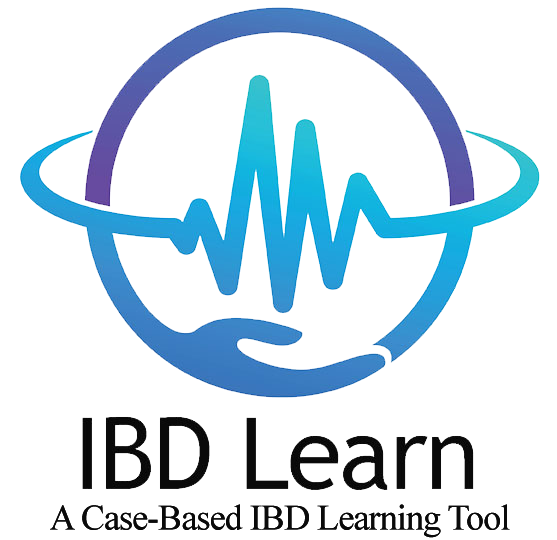aCase 17 Discussion
Learning Objectives
- Know indications to refer a patient to see a dietitian.
- Recognize signs and symptoms of malnutrition.
- Apply latest evidence of diets in IBD.
- Identify missing food groups and nutrients lacking in diet histories.
- Recognize signs of Avoidant Restrictive Food Intake Disorder.
- Devise strategies to optimize intake for nutritional adequacy.
IBD EPAs
EPA 8: Recognize the importance of psychobehavioral health in IBD and implement psychosocial support strategies
EPA 9: Evaluate and manage nutritional health status in patients with IBD
Patients with IBD are at risk for nutritional impairments and malnutrition. There is no single biochemical marker to diagnosis malnutrition as micronutrients can be positive or negative acute phase reactants and may also reflect disease activity versus depleted stores. Low levels of albumin and pre-albumin in setting of inflammation are likely not reflective of nutrition status and should not be used to solely diagnose malnutrition. These laboratory findings should be taken in clinical context including weight loss, sarcopenia, loss of subcutaneous fat, and a change in functional status. Malnutrition is influenced by the segment of the small bowel or the colon that is involved, and severity of disease activity. Contributors to malnutrition include presence of active inflammation that may aggravate gastrointestinal symptoms and intolerance to diet, malabsorption of nutrients that may lead to weight loss, and side effects from medications. Malnutrition in IBD is also associated with multiple hospital admissions, length of stay, and increased mortality. All patients with IBD should undergo screening for malnutrition in a timely manner to determine appropriate medical and nutrition interventions.
There is minimal evidence that modifications in diet can solely induce remission in adults with IBD. The interest in the use of diet in the treatment and management of IBD stems from beliefs that intake of specific nutrients could be pro or anti-inflammatory. Consumption of refined sugars and total fats may potentially promote production of pro-inflammatory cytokines, increase intestinal permeability and alter the gut microbiota that may stimulate inflammation. A low fiber diet, especially with insufficient intake of fruits and vegetables may increase risk in Crohn’s disease. There is insufficient evidence to modify intake in ulcerative colitis. A diet high in plant-based foods that have fiber, are low in saturated fats, and low in refined sugars is recommended in IBD. All food groups are appropriate to include in the diet for nutritional adequacy of macro and micronutrient intake. Portions overall can aid in determining threshold of tolerance.
Diet can be used for symptom management, but may not completely resolve symptoms due to presence of inflammation. In active disease, patients may restrict specific foods that may aggravate symptoms and inflammation. In remission, patients may not add foods back due to fear of recurrence of symptoms and active disease. ARFID is a pattern of disordered eating characterized by apparent lack of interest in eating or food, avoidance based on the sensory characteristics of food, and/or concern about aversive consequences of eating including increased food related symptoms. This can result in weight loss, nutritional deficiency, dependence on nutritional supplements, and interference in psychosocial functioning.
It is important to involve the dietitian in the nutritional care of the patient as the dietitian will stay abreast of the latest evidence of nutrition therapies with IBD to bring forward an evidence-based plan of care to reduce knowledge deficit, address nutritional concerns and promote a healthy relationship with diet.
- Forbes, A., et al (2017). ESPEN guideline: Clinical nutrition in inflammatory bowel disease. Clinical Nutrition, 36(2), 321-347.
- White, J. V., et al (2012). Consensus statement of the Academy of Nutrition and Dietetics/American Society for Parenteral and Enteral Nutrition: characteristics recommended for the identification and documentation of adult malnutrition (undernutrition). Journal of the Academy of Nutrition and Dietetics, 112(5), 730-738.
- Hwang, C., et al (2012). Micronutrient deficiencies in inflammatory bowel disease: from A to zinc. Inflammatory bowel diseases, 18(10), 1961-1981.
- Evans, D. C., et al (2021). The use of visceral proteins as nutrition markers: an ASPEN position paper. Nutrition in Clinical Practice, 36(1), 22-28.
- Levine, A., et al (2020). Dietary guidance from the international organization for the study of inflammatory bowel diseases. Clinical Gastroenterology and Hepatology, 18(6), 1381-1392.
- Marsh, A., et al (2019). Food avoidance in outpatients with Inflammatory Bowel Disease–Who, what and why. Clinical nutrition ESPEN, 31, 10-16.
